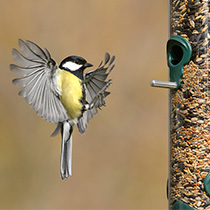Road verges - a silver lining? says Plantlife
Posted on
|
If I’m driving along in my car, I always find the wildlife flowers on our verges to be very uplifting to see. And whilst I’ve been having my daily one walk during the lockdown because of the coronavirus, I’ve really enjoyed seeing all the wild flowers which are about. Please give Plantlife your support with their Road Verge Campaign
It’s really important to protect our wild flowers, our plants and our fungi. And our roadsides have been much quieter of late, as lockdown is observed. The drone of many councils’ mowers have also fall silent as councils may have reduced grass cutting down to the minimum required to maintain visibility and make sure our roads are safe. Plantlife hope that reduced cutting frequencies may help verge wildflowers to grow, flower and set seed. Flowers such as the white campion, betony, greater knapweed and harebell, the chance to grow, flower and set seed. The good news is that a more wildlife-friendly management regime will help tackle climate change. Over 300 local authorities have now declared a climate emergency. Reducing their cutting regimes, as recommended in Plantlife’s management guidelines, will also help councils bring down carbon emissions.
|
